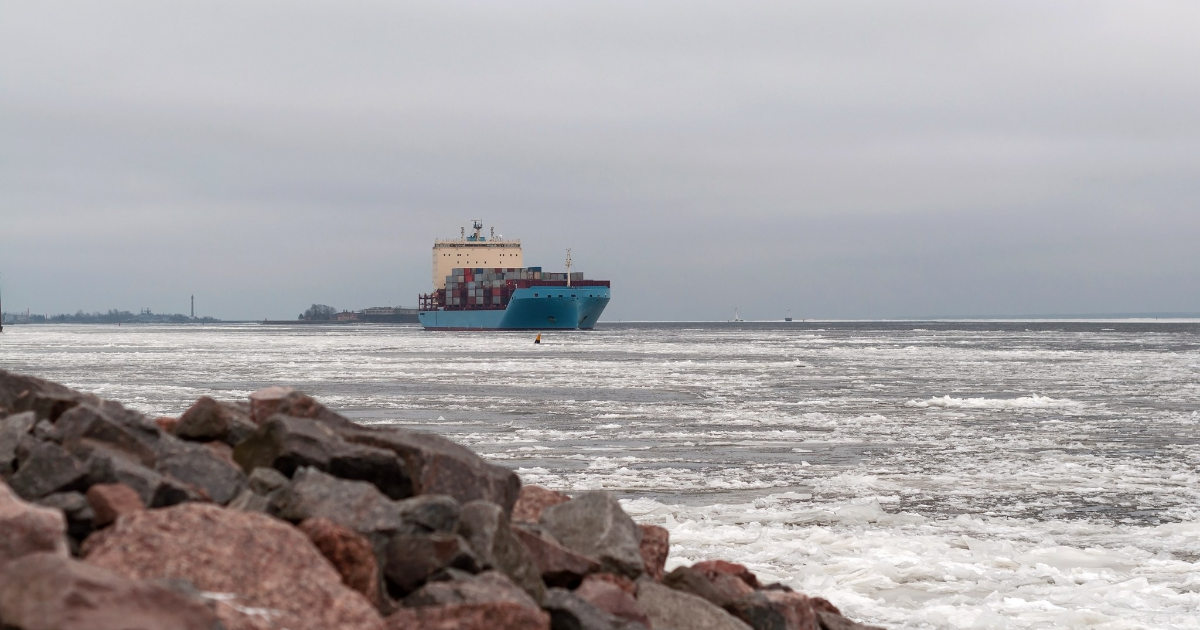Compromise on reducing greenhouse gas emissions from international shipping

At the 75th session of the Marine Environment Protection Committee (MEPC) of the International Maritime Organization (IMO) on 16-20 November, Member States reached a compromise on the rules to reduce greenhouse gas emissions from international shipping in the short term.
The meeting decided on the regulations for reducing carbon intensity of ships engaged in international transport by both technical and operational means. A technical approach means that a ship must achieve a certain level of energy efficiency by means of technical solutions such as rotor sails. An operational approach means that a ship must achieve a certain annual carbon intensity target by operational means such as reducing the ship's speed. The regulations will be included in the MARPOL Convention with the aim to achieve the objective of the initial IMO GHG Strategy. According to it, the carbon intensity of international shipping, i.e. CO2 emissions in relation to transport work, shall be reduced by at least 40% by 2030 compared to 2008.
The weakness of the compromise result is that it does not contain efficient enforcement rules, if the required corrective measures to reduce emissions are not taken. This hinders the achievement of the emissions reduction target set for 2030. Without clear punitive enforcement measures in case of non-compliance, the emission reduction effect is likely to be far below the level of the IMO's objectives and the Paris Agreement on climate change. This would have been the minimum level desired by Finland and many other countries.
In the negotiations, Finland achieved its key objective in terms of energy efficiency requirements for roro and ropax vessels. The specific requirements for these vessels will be taken into account in the internationally binding amendments to the MARPOL Convention so that it is realistic for roro and ropax vessels to achieve the required level of energy efficiency.
The negotiations on the more detailed guidelines and possible codes will continue. If the guidelines specifying the MARPOL amendments are not strict and clear, the greenhouse gas emissions will continue to grow and the IMO will not achieve its targets. The next working group session on the specifying rules will be arranged in May 2021.
At the meeting, Finland, on its own initiative and successfully, advocated clear working arrangements for the IMO bodies in order to allow Member States to agree on emission reduction measures in line with the timetable set in the IMO's Initial GHG Strategy.
Next steps
The decision of the meeting on short-term measures to reduce greenhouse gas emissions should be approved at the next IMO Marine Environment Protection Committee session in summer 2021. The requirements for improving the energy efficiency and carbon intensity of vessels would enter into force on 1 January 2023.
The negotiations will continue on medium and long-term measures to reduce emissions. These measures could include market based methods, such as an international fuel levy, and measures to speed up the introduction of low-carbon and carbon-free fuels.
According to the set target, the total annual emissions from international shipping must decrease by at least 50% by 2050 compared to 2008. If emissions are not effectively reduced, the emissions are estimated to increase by 90-130% by 2050 compared to 2008, depending on the global economy and the energy market.
The Ministry of Transport and Communications is preparing a resolution on the reduction of GHG emissions from maritime and inland waterway transport, which would guide Finland's influencing work internationally and outline national targets for emission reductions. A draft resolution is due to be circulated for comments at the end of 2020.
Inquiries:
Päivi Antikainen, Director of Unit, tel. +358 50 382 7101, paivi.antikainen(at)lvm.fi, Twitter @PaiviAntikainen
Eero Hokkanen, Senior Specialist, tel. +358 50 476 0401, eero.hokkanen(at)lvm.fi, Twitter @eerohokkanen
International Maritime Organization IMO



